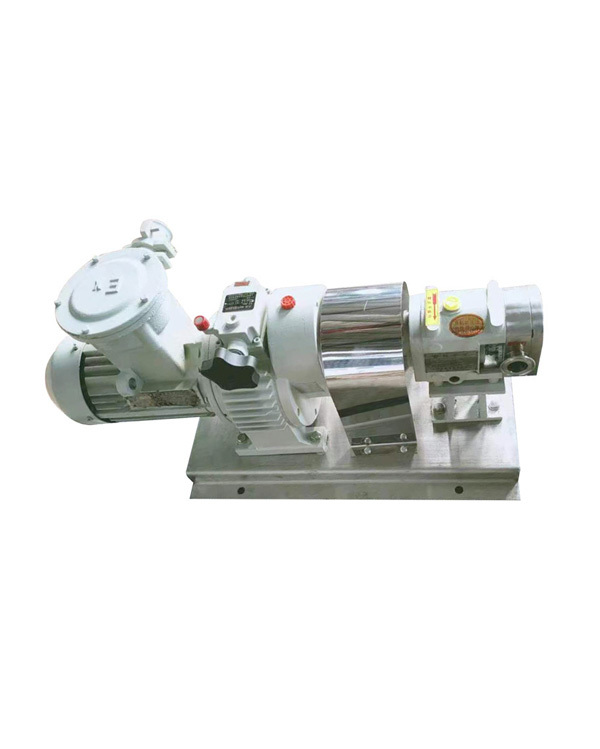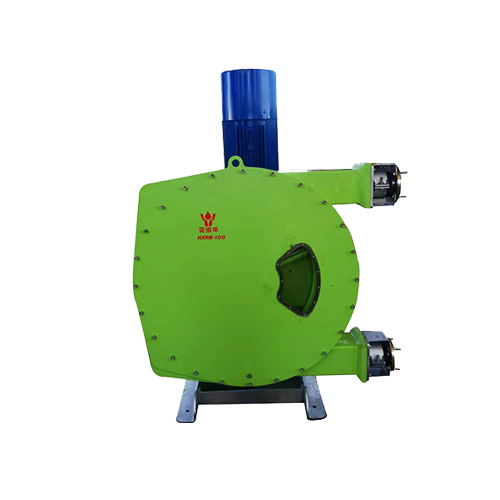The Future of Industrial Pumping: Unleashing the Potential of Rotary Lobe Pumps for Syrup and Molasses
Mar 20,2025

The Future of Industrial Pumping: Unleashing the Potential of Rotary Lobe Pumps for Syrup and Molasses
Table of Contents
- Introduction to Rotary Lobe Pumps
- Understanding Rotary Lobe Pumps
- Advantages of Rotary Lobe Pumps for Syrup and Molasses
- Applications of Rotary Lobe Pumps in Industry
- Technological Advancements in Pump Design
- Maintenance and Reliability of Rotary Lobe Pumps
- Case Studies: Successful Implementations
- Future Trends in Industrial Pumping
- Conclusion
- Frequently Asked Questions
Introduction to Rotary Lobe Pumps
In the realm of industrial pumping, rotary lobe pumps have emerged as a game-changer, especially for handling viscous substances like **syrup** and **molasses**. As industries evolve and demand for efficient, reliable, and cost-effective solutions grows, understanding the capabilities and advantages of rotary lobe pumps becomes essential. This article delves into the numerous benefits, applications, and future prospects of rotary lobe pumps, focusing on their impact in the syrup and molasses sectors.
Understanding Rotary Lobe Pumps
Rotary lobe pumps are positive displacement pumps that utilize rotating lobes to move fluids. These lobes create a series of chambers that trap and transport the liquid from the inlet to the outlet. The design of these pumps allows for gentle handling of shear-sensitive materials, making them ideal for transferring viscous substances without compromising their integrity.
Key Components of Rotary Lobe Pumps
The primary components of a rotary lobe pump include:
- **Rotors**: The lobes that rotate and create a pumping action.
- **Housing**: The casing that contains the rotors and allows for fluid movement.
- **Drive System**: The mechanism that powers the rotors, typically an electric motor or hydraulic system.
How Rotary Lobe Pumps Work
As the rotors turn, they create suction at the inlet, drawing in syrup or molasses. The liquid is then trapped between the lobes and the housing and is pushed through to the outlet. This process ensures a consistent flow rate and minimizes pulsation, making rotary lobe pumps an excellent choice for volumetric pumping applications.
Advantages of Rotary Lobe Pumps for Syrup and Molasses
Rotary lobe pumps offer numerous advantages that make them particularly suited for handling syrup and molasses.
1. Gentle Product Handling
One of the standout features of rotary lobe pumps is their ability to handle shear-sensitive products delicately. This means that they can transfer syrup and molasses without causing degradation or altering their viscosity.
2. High Efficiency
The positive displacement nature of rotary lobe pumps ensures that they can maintain a consistent flow rate, even with varying viscosities. This efficiency translates to reduced energy consumption and operational costs for manufacturers.
3. Versatility
Rotary lobe pumps can handle a wide range of viscosities and temperatures, making them highly versatile for different industrial applications beyond syrup and molasses, including food processing and chemical manufacturing.
4. Easy Maintenance
These pumps are designed for easy access to components, allowing for quick maintenance and reduced downtime. Their simple construction means that routine servicing can be performed with minimal disruption to operations.
5. Hygiene and Cleanability
In industries where hygiene is pivotal, such as food and beverage manufacturing, rotary lobe pumps are designed for easy cleaning. Many models are compliant with sanitary standards, which is critical when handling consumable products.
Applications of Rotary Lobe Pumps in Industry
Rotary lobe pumps find extensive applications across various industries, with notable success in syrup and molasses transfer.
1. Food and Beverage Industry
In the food and beverage industry, rotary lobe pumps are widely used for transferring thick liquids such as syrups, sauces, and molasses. Their ability to handle high-viscosity products without damaging them makes them a preferred choice.
2. Chemical Industry
These pumps are also employed in the chemical industry for transferring viscous fluids and slurries. Their robust design and efficiency make them suitable for a variety of chemical applications.
3. Pharmaceutical Industry
In the pharmaceutical sector, rotary lobe pumps are used for precise dosing and transferring of formulations. Their cleanability and ability to maintain product integrity are critical in this industry.
Technological Advancements in Pump Design
Continuous innovation in rotary lobe pump design has led to significant improvements in performance and reliability.
1. Materials and Coatings
Modern rotary lobe pumps are often constructed from advanced materials and coatings that enhance durability and resistance to corrosion, ensuring a longer service life.
2. Smart Pump Technology
Integrating smart technology into rotary lobe pumps allows for real-time monitoring and predictive maintenance. This leads to enhanced efficiency and reduced operational costs.
3. Modular Design
Many manufacturers are adopting modular designs for rotary lobe pumps, allowing for easy upgrades and customizations based on specific production needs.
Maintenance and Reliability of Rotary Lobe Pumps
Maintenance is crucial for ensuring the longevity and reliability of rotary lobe pumps.
1. Regular Inspections
Implementing a schedule for regular inspections can help identify potential issues before they escalate, ensuring consistent performance.
2. Lubrication and Sealing
Proper lubrication and sealing of moving parts can prevent wear and tear, contributing to the pump's overall reliability.
3. Training and Best Practices
Training operators on best practices for operating and maintaining rotary lobe pumps can further enhance their reliability and effectiveness.
Case Studies: Successful Implementations
Examining successful case studies can provide insights into the effectiveness of rotary lobe pumps in real-world applications.
1. A Leading Syrup Manufacturer
A prominent syrup manufacturer integrated rotary lobe pumps into their production line, achieving a 30% reduction in energy costs while maintaining product quality.
2. Molasses Transfer in Biofuel Production
In a biofuel facility, rotary lobe pumps were employed to transfer molasses, resulting in improved flow rates and reduced downtime due to their low maintenance needs.
Future Trends in Industrial Pumping
The future of industrial pumping, particularly with rotary lobe pumps, looks promising as industries continue to innovate.
1. Increased Automation
As automation becomes more prevalent in manufacturing processes, the integration of rotary lobe pumps with automated systems will enhance efficiency and reduce human error.
2. Sustainability Initiatives
The push for more sustainable practices in manufacturing will lead to greater demand for energy-efficient rotary lobe pumps that minimize waste and environmental impact.
3. Customization and Flexibility
The demand for customized solutions will drive the development of more adaptable rotary lobe pump designs that can cater to specific industrial needs.
Conclusion
Rotary lobe pumps represent a significant advancement in the field of industrial pumping, particularly for the syrup and molasses industries. Their unique ability to handle viscous liquids gently while maintaining efficiency and reliability makes them an essential tool for modern manufacturing. As technological advancements continue to shape the future of pumping, rotary lobe pumps will undoubtedly play a crucial role in meeting the evolving needs of various industries.
Frequently Asked Questions
1. What are rotary lobe pumps used for?
Rotary lobe pumps are primarily used for transferring viscous fluids, including syrup, molasses, sauces, and various chemicals.
2. How does a rotary lobe pump work?
The pump operates by rotating lobes that create suction, drawing in liquid and then pushing it through to the outlet without causing shear damage.
3. What are the maintenance requirements for rotary lobe pumps?
Regular inspections, lubrication of moving parts, and operator training on best practices are key to ensuring reliable operation.
4. Can rotary lobe pumps handle shear-sensitive products?
Yes, rotary lobe pumps are designed to handle shear-sensitive products gently, making them ideal for applications like syrup and molasses.
5. What industries commonly use rotary lobe pumps?
They are widely used in the food and beverage, chemical, and pharmaceutical industries due to their versatility and ability to maintain product integrity.
Contact Us
E-mail :
sales@yaquanpump.com
service@yaquanpump.com
Phone/WhatsApp:
+44 7301702546
+63 9452052801
Address:
Room B208, Building 2, North Hongqiao Songri Center, No.215 Gaochao Road, Jiading District, Shanghai









